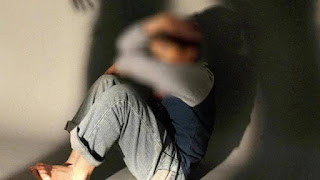FREE Legal advice service Help! We offer a comprehensive legal advice and opinion service covering all aspects of Indian law: Email a legal question. WE DO NOT ASK ANY INFORMATION FROM USERS
Wednesday, March 30, 2022
Newspaper reports of no evidentiary value: Delhi High Court
The Delhi High Court, while dismissing a petition seeking details of the Supreme Court Collegium meeting held on December 12, 2018, held that newspaper reports regarding the same hold no evidentiary value and cognisance could not be taken of unsubstantiated and unverified reports.
permanent injunction in favour of ANI in trademark suit against ANINEWSINDIA - Delhi High Court
The Court observed that internet users could be deceived into believing that the defendants as well as their website and various platforms are connected with the plaintiff.
“Defendant Nos.1 and 2 (the owners of the website) who are proceeded ex parte today are permanently injuncted from using the mark ‘ANI’ or any other derivatives including the logo form of ‘ANI’ as depicted in the plaint and in this order, either with or without the word ‘news’ and ‘India’ as ‘aninewsindia’, ‘aninews’ or in any other manner whatsoever including on the internet or any other social media platform including Instagram and Facebook, including the domain name containing the word ‘ANI’.”
The Court was informed that Google has already de-indexed the defendant’s website. It was said that though the two Facebook pages relating to ‘www.aninewsindia.com’ and www.facebook.com/aninewsindia1’, have already been pulled down, the personal Facebook page of the first defendant, who described himself as the Editor of ‘aninewsindia,’ is still operating. Justice Singh, therefore, directed that the said page be taken down within 36 hours.
Unmarried daughter can claim marriage expenses from parents: The case was remanded : Chhattisgarh High Court
A Division Bench of Justices Goutam Bhaduri and Sanjay S Agrawal held that Section 3 (b) (ii) of the Act includes expenses for marriage in unambiguous terms.
“In Indian society, normally expenses are required to be incurred for pre-marriage and also at the time of marriage,” the Bench observed while noting that a right was created and courts could not be in “denial mode” when such rights are claimed by unmarried daughters.
The Bench was hearing an appeal from an order of a Family Court which had dismissed an application by an unmarried daughter claiming an amount of ₹25 Lakh for the purpose of marriage.
An appeal was thus moved before the High Court. The appellant placed reliance on a judgment of the Madras High Court in the case of R Durairaj v Seethalakshmi Ammal to state that the maintenance amount would include the expenses of marriage, and the Family Court should not have dismissed the application.
Considering the provision, the Bench found that such a statutory attempt cannot be terminated at a threshold, and set aside the order of the Family Court.
Tuesday, March 29, 2022
POCSO survivor can be cross examined by State if she turns hostile: Karnataka High Court
The instant petition was filed on a complaint being registered for offences punishable under Section 376(n) read with Section 34 of Penal Code, 1860 i.e. IPC, Sections 4, 6, 8, 12 and 17 of the POCSO Act and Sections 9, 10 and 11 of the Prohibition of Child Marriage Act. The State is before the Court in the subject petition challenging the order dated 16-09-2019 passed by the Principal District and Sessions Judge, Chamarajnagar whereby the Sessions Judge declined to permit the State to cross-examine the victim on her turning hostile in a case arising out of the provisions of the Protection of Children from Sexual Offences Act, 2012 (‘POCSO Act’ for short) and Sections 9, 10 and 11 of the Prohibition of Child Marriage Act, 2006.
The Court relied on judgment Doula v. State, Criminal Appeal No.100260/2016 decided on 22-07-2020 observed that in terms of sub-section (2) of Section 33 of the POCSO Act, the Special Public Prosecutor or as the case would be, the counsel appearing for the accused shall, while recording examination-in-chief, cross-examination or re-examination of the child communicates the questions to be put to the child to the Special Court which shall, in turn, put those questions to the child. Therefore, the victim is permitted to be cross-examined under the POCSO Act itself on her turning hostile which would also cover the situation under sub-section (2) of Section 33 of the POCSO Act.
The Court thus observed that from a perusal of the impugned order is that it runs counter to Section 33 of the POCSO Act, judgments rendered by various courts and resultantly becomes unsustainable. Therefore, the State is to be permitted to cross-examine the victim. But, such cross-examination can be only in terms of Section 33 of the POCSO Act which mandates that while cross-examination questions shall be put to the Court and the Court, in turn, to put the same questions to the victim. The Sessions Judge shall take such care and caution in transmitting the questions to the victim to be in strict consonance.
Friday, March 25, 2022
A landlord whose property was used as a brothel cannot be prosecuted under the Immoral Traffic (Prevention) Act, if he/ she was unaware-Karnataka High Court
The petitioner clearly stated in his reply that he was not aware that the premises were being used as a brothel and that he lived far away, which the police also acknowledged in the chargesheet filed against him, the Court noted.
It, therefore, allowed the petition and quashed criminal proceedings against the petitioner, while adding that the observations made by the court only apply to the present petitioner, and shall not influence proceedings against any other accused pending before any other forums.
Tuesday, March 22, 2022
Absence of medical report of victim would go in favour of rape accused: Calcutta High Court
Justice Bibek Chaudhuri held in the judgment that the victim had denied having herself medically examined and the same would go in favour of the accused.
"If a girl of 13 years is violated by a grownup person like the accused, Subrata Pradhan, there must be marks of violence and injury on her private part. The said mark of injury would be visible at the time of medical examination of the victim. However, the victim denied having been examined medically. Thus, the absence of any report of medical examination of the victim would go in favour of the accused and he is entitled to get the benefit of the doubt."
The Court set aside the conviction for the following reasons:
The statement made in the FIR itself was in the nature of hearsay. In the FIR, it was alleged that the victim girl was kidnapped on her way to school. However, she stated on oath that the accused picked her up when she was returning home from school and took her somewhere by vehicle;
The victim girl refused to get examined medically after she was produced before the medical officer. In her examination-in-chief, she stated on oath that she declined to get herself medically examined as there was no female doctor in the hospital. Assigning a reason for her refusal to get herself examined medically amounts to a material contradiction in the case;
In her evidence, the victim girl stated that the accused had taken away her medical documents from her school bag. This was not stated by her before the investigating officer. This amounted to a material contradiction in view of the fact that the specific case of the accused is that the accused and the victim girl had developed a relationship and the accused helped the victim girl in her medical examination;
The victim girl stated in her evidence that the accused brought her to the local police station. On the other hand, the investigating officer stated that he arrested the accused and the victim girl;
The prosecution did not try to collect the birth certificate of the victim girl or the school leaving certificate or any other documents to prove that she was a minor. The prosecution also failed to place her before the medical board for ascertaining of her age. In the absence of such evidence, she cannot be held to be a minor and the charge under Section POCSO Act cannot stand.
Judges not technical experts; courts should refrain from interfering with technical contracts/ tenders: Supreme Court
BH SERIES FOR ALL OVER INDIA -लाखों लोगों के लिए राहत /राज्य बदलने पर न...
बीएच-सीरीज़:
भारत-सीरीज़ नंबर प्लेट्स के बारे में आप सभी को पता होना चाहिए
BH Series: जिन लोगों को नौकरी के चलते बार-बार एक राज्य से दूसरे राज्य में जाना पड़ता है, उन्हें इस सीरीज से बड़ी राहत मिलने वाली है. उन्हें अब राज्य बदलने पर गाड़ी का फिर से रजिस्ट्रेशन कराने की जरूरत नहीं होगी.
लाखों लोगों के लिए राहत /राज्य बदलने पर नहीं होगा सिरदर्द
सीरीज के लिए इतना देना होगा चार्ज
इस नई सीरीज में 10 लाख रुपये से कम कीमत वाले वाहनों पर 8 फीसदी की दर से शुल्क का भुगतान कर BH सीरीज का नंबर हासिल किया जा सकता है. वाहन की कीमत 10 लाख से 20 लाख रुपये तक होने पर इस सीरीज के लिए 10 फीसदी की दर से शुल्क लगेगा. अगर वाहन की कीमत 20 लाख रुपये से ज्यादा हुई तो, बीएच सीरीज के लिए 12 फीसदी की दर से शुल्क का भुगतान करना होगा.
ये लोग भी उठा सकते हैं लाभ
इस BH-Series का लाभ राज्य सरकारी कर्मचारियों के अलावा निजी क्षेत्र की बड़ी कंपनियों के एम्प्लॉई भी उठा सकेंगे. प्राइवेट सेक्टर की जिन कंपनियों के ऑफिस 4 या उससे ज्यादा राज्यों/ केन्द्र शासित प्रदेशों में होंगे, उनके कर्मचारी इसका फायदा उठा सकते हैं!
बीएच सीरीज़ या भारत सीरीज़ 28 अगस्त 2021 को भारत में पेश किए गए गैर-परिवहन वाहनों के लिए नंबर प्लेटों की एक सीरीज़ है। उसी के लिए पंजीकरण 15 सितंबर 2021 से शुरू हुआ!
इससे पहले, मोटर वाहन अधिनियम, 1988 की धारा 47 के अनुसार, मालिकों को केवल 12 महीने के लिए अपने वाहन को दूसरे राज्य (जिस राज्य में वे पंजीकृत हैं, से अलग) में रखने की अनुमति थी।
Format- YY BH #### XX
बीएच सीरीज नंबर प्लेट दो नंबरों के साथ शुरू होगी जिसमें पहले पंजीकरण का वर्ष दिखाया जाएगा, उसके बाद बीएच 'भारत' का प्रतिनिधित्व करेगा। बाद में, नंबर प्लेट पर 0000 से 9999 तक चार Randomly generated numbers रूप से उत्पन्न संख्याएँ होती हैं, इसके बाद दो अक्षर 'AA' से 'ZZ' तक सभी संयोजनों का उपयोग करते हैं। हालाँकि, 'I' और 'O' अक्षरों का उपयोग नहीं किया जाता है।
इन झंझटों से मिलेगी मुक्ति
बीएच सीरीज की खास बात यह है कि इस सीरीज की गाड़ी को लेकर हिंदुस्तान के किसी भी कोने में सफर किया जा सकता है.
Saturday, March 19, 2022
Son cannot claim right to parents' property when they are alive: Bombay High Court
Film production houses must set up ICC for sexual harassment cases: Kerala High Court
Read Judgment
Film production houses must set up ICC for sexual harassment cases; Political Parties need not: Kerala High Court
A Division Bench of Chief Justice S Manikumar and Justice Shaji P Chaly said that apart from production houses which directly employ actors, even organisations related to the film industry have to maintain ICC, if they are engaging 10 workers or more for managing the office establishments and wherein women workers are employed for wages.
However, political parties which don't having any employer-employee relationship with its members and which are not carrying on with any private venture, undertaking, enterprises, institution, establishment etc. in contemplation of a 'workplace', need not maintain ICC.
The Court passed the judgement in a group of Public Interest Litigation petitions filed by various organisations seeking to constitute a grievance redressal mechanism against sexual harassment as per the directions of the Supreme Court in Vishakha v. the State of Rajasthan and in accordance with the Sexual Harassment of Women at Workplace (Prevention, Prohibition and Redressal) Act, 2013 (POSH Act).
The judgement of the Court laid down the following guidelines for different organisations :
The production unit of each film industry is an establishment employing actor artists and other workers and therefore, such production units have to maintain an Internal Complaints Committee, if they are engaging more than 10 workers, as is contemplated under the Act, 2013;
Respondent organisations, apart from the political parties, are duty-bound to maintain Internal Complaints Committee, if they are engaging 10 workers or more for managing the office establishments and wherein women workers are employed for wages or not;
If women workers are employed by any of the respondent organisations related to the film industry in which less than 10 workers are used, then they are entitled to make suitable complaints to the Local Complaints Committee in accordance with the provisions contained under section 6 read with Section 9 of Act, 2013;
Since the Association of Malayalam Movie Actors (AMMA) has volunteered to appoint a committee to deal with any sexual harassment at its workplace, we record the same and accordingly to take action to notify the members of the Internal Complaints Committee, in accordance with law;
From the discussions made above, we find that the political parties, which are not having an employer-employee relationship with its members and which are not carrying on with any private venture, undertaking, enterprises, institution, establishment etc. in contemplation of a 'workplace' as defined under section 2(o)(ii) of Act, 2013, are not liable to make any Internal Complaints Committee;
In all other cases, a woman employee subjected to sexual harassment is entitled as of right to file any complaint of sexual harassment before the Local Committee in contemplation of the provisions of the act, and under section 9 r/w. Section 6 of Act, 2013.
Tuesday, March 15, 2022
हिजाब इस्लाम का अनिवार्य हिस्सा नहीं/ Hijab is not a part of Essential R...
सरकारी पीयू कॉलेज की कुछ मुस्लिम छात्राओं को हेडस्कार्फ़ पहनने के कारण प्रवेश से वंचित करने के बाद विवाद खड़ा हो गया।
कर्नाटक हाईकोर्ट ने कॉलेजों में हिजाब प्रतिबंध के मामले में कहा कि हिजाब पहनना इस्लामी आस्था में अनिवार्य धार्मिक प्रथा का हिस्सा नहीं है और इस प्रकार, संविधान के अनुच्छेद 25 के तहत संरक्षित नहीं है।
हाईकोर्ट की पूर्ण पीठ ने आगे कहा कि राज्य द्वारा स्कूल ड्रेस का निर्धारण अनुच्छेद 25 के तहत छात्रों के अधिकारों पर एक उचित प्रतिबंध है और इस प्रकार, कर्नाटक सरकार द्वारा 5 फरवरी को जारी सरकारी आदेश उनके अधिकारों का उल्लंघन नहीं है।
Monday, March 14, 2022
'Hijab Not Essential Religious Practice In Islam': Karnataka High Court
Dismisses Muslim Girls' Petitions Against Hijab Ban In Colleges
Wearing of hijab is not a part of Essential Religious Practice in Islamic faith and thus, is not protected under Article 25 of the Constitution, the Karnataka High Court has held today.
A Full Bench of the High Court further held that prescription of school uniform by the State is a reasonable restriction the students' rights under Article 25 and thus, the Government Order issued by the Karnataka government dated February 5 is not violative of their rights.
Accordingly, the Court has dismissed the petitions filed by Muslim girl students, challenging the action of a government PU colleges in denying their entry for wearing a hijab (headscarf).
The Court said that it has framed the following questions :
1. Whether wearing hijab is ERP in islamic faith protected under Article 25
2. Whether prescription of school uniform is violative of rights.
3. Whether GO of Feb 5 apart from being incompetent and manifestly arbitrary violates Articles 14 and 15
4. Whether any case is made out for issuance of disciplinary inquiry against college authorities.
Chief Justice Ritu Raj Awasthi, who read out the operative portion of the judgment in the open court, said as follows :
"Our answers to the questions are, wearing of Hijab by Muslim women does not form Essential Religious Practice in Islamic faith.
Our second answer is prescription of school uniform is only a reasonable restriction, constitutionally permissible which students cannot object to.
In view of the above, the government has power to issue the GO of February 5 and no case is made out for its invalidation.
No case is made out for the issuance of disciplinary proceedings against respondents and writ of quo warranto is not maintainable.
All writ petitions being devoid of merits are dismissed".
Thursday, March 10, 2022
Calcutta High Court stays West Bengal internet shutdown
The order was stayed by a Bench of Chief Justice Prakash Shrivastava and Justice Rajarshi Bharadwaj.
The decision was purportedly taken by the State to prevent mass cheating in the upcoming State board exams. It sought to suspend internet services in Malda, Murshidabad, Uttar Dinajpur, Coochbehar, Jalpaiguri, Birbhum, and Darjeeling.
Wednesday, March 9, 2022
Any act that would involve touching the private parts/genitalia of a child with a sexual intent. Amount to a sexual assault: Punjab and Haryana High Court
The High Court rejected these arguments while finding that penetration is not sine qua non (an essential condition) for attracting the penalty of sexual assault.
“Any act that would involve touching the private parts/genitalia or primary/ secondary sexual characteristics of a child with a sexual intent involving physical contact without penetration would amount to a sexual assault,” the Court held.
Monday, March 7, 2022
Gujarat High Court grants interim relief to lawyers against demand notices by CGST Department
The Gujarat High Court on 8/3/2022 ordered that no coercive action should be taken against lawyers in relation to notices issued to them by the Central Goods and Service Tax Department (CGST Department) demanding payment of service tax/ GST.
A bench of Justices JB Pardiwala and Nisha M Thakore passed the ad-interim order after taking note of an Orissa High Court order passed in relation to this issue in March 2021.
"We take note of order passed by Orissa High Court on March 31, 2021. The matter requires consideration. By way of an ad-interim order, we direct that no coercive action shall be taken against advocates, law firm of advocates including LLPs providing legal service, for non-compliance with any legal requirements under CGST, DGST or IGST," the order said.
The Court was hearing a plea by the Gujarat High Court Advocates Association (GHCAA) challenging demand notices issued to a large number of its members.
When the matter came up for hearing, the Bench asked why the association has come forward instead of individuals who are affected.
Advocate Masoom K Shah, appearing for the petitioner-association, said that large number of lawyers are getting such notices because the Income Tax Department is not aware whether the concerned individual is a lawyer or not who is eligible for reverse charge mechanism under the law.
"Income Tax Department sends data (to CGST). The Department is not aware whether an individual is a lawyer or not. Large number of lawyers have received such notices,"
Sunday, March 6, 2022
High Courts Can't Issue Directions For 'No Arrest' or 'No Coercive Action Till Final Report Filed' While Refusing To Quash Criminal Proceedings: SC Reiterates
The Supreme Court set aside the order of the Allahabad High Court to the extent that without quashing the FIR in the petition filed under Article 226 of the Constitution of India read with Section 482 of the Criminal Procedure Code, 1973 ("Cr.P.C."), it had directed that the accused shall not be arrested till the final report is submitted.
A Bench comprising Justices M.R. Shah and B.V. Nagarathna observed that the Apex Court had disapproved of the practices of passing orders of "no arrest" or "no coercive action" when the quashing petition itself was dismissed.
Thursday, March 3, 2022
Why the Delhi High Court quashed an FIR with rape, POCSO Act charges ?
The power of Section 482 CrPC
₹25k costs Imposes on Passport Officer for rejecting application by divorced single mother to renew daughter's passport
District, State Consumer Forums can consider medical negligence complaints against doctors: Kerala High Court
The Court held that medical services fall within the ambit of Section 2(42) of the Consumer Protection Act, unless the service is free of charge or under a contract of personal service.
"A reading of the inclusive part in Section 2(42) would show that the Parliament intended to specifically underline that certain services like Banking, Financing, Insurance, Transport, etc., which are in the nature of public utility services, would come within the purview of ‘services’. The definition is inclusive and not exhaustive. Therefore, all services which are made available to potential users would fall under Section 2(42), except those services rendered free of charge or under a contract of personal service. The words “but not limited to” appearing in Section 2(42) clarifies the intention of the Parliament", the Court observed.
The judgment was passed in a petition moved by several doctors against whom the respondent had filed a complaint at the District Consumer Disputes Redressal Commission, seeking compensation of ₹32,52,000 for loss of eyesight that was allegedly caused due to their medical negligence.
The petitioners had challenged the maintainability of the complaint before the District and State Consumer Disputes Redressal Commissions, which dismissed the same.
Thereafter, they approached the High Court for a direction declaring that the orders of the District and State Commissions were sans jurisdiction and hence illegal.
The High Court said that the District and State Consumer Disputes Redressal Commissions can consider complaints against doctors for negligence in services provided except when it is free of charge.
The High Court dismissed the petition.
* Discussed Judgment of Supreme Court:






.png)

.png)








